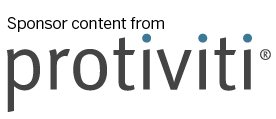Risk, Resilience and Reinvention: Helping financial services companies run better and transform smarter

With one of the most turbulent years in history behind us, we are looking ahead into 2021 with cautious optimism. As the risk landscape continues to evolve, financial services executives can no longer rely on traditional, monolithic approaches. Today’s dynamic environment requires new methods and thinking. Businesses are facing increasing demands for digitization that comes with new risks. Economies face new lockdowns, and individuals are trying to figure out how to work in a new reality. Even if the COVID-19 vaccines are as successful as we all hope, there is still significant uncertainty in what lies ahead of us.
As you work on steadying the ship, you want your stakeholders to feel reassured. This means leading the organization with confidence as you:
- Respond to clients’ needs that have changed since the pandemic
- Ensure that new areas of risk are managed appropriately
- Continue to build the organization’s strength to withstand adversity and accelerate innovation and digitization
- Address changes in the regulatory environment that may come with a new administration
Protiviti and American Banker have provided easy access to a wide range of valuable information that addresses many of these critical issues. From lessons learned and considerations for managing a global pandemic to value stream management as a preferred approach to accelerate value delivery, this immersive content provides insights and resources to help you take decisive actions to run better and transform smarter.
Regulatory Changes
We are all dealing with an extraordinary situation. Regulators continue to balance potentially conflicting priorities — the mandate to protect the safety and soundness of the banking system and the desire to be supportive of government initiatives to aid consumers and companies that have been adversely impacted. Banking leaders must remain resilient and adaptable as the situation and risks evolve.


Prepare for Changes as Biden Administration Sets Sight on ESG - Top of Mind Compliance Issues for 2021
It’s been fewer than two decades since the term ESG, or Environmental, Social and Corporate Governance, was coined in a landmark report commissioned by the United Nations. ESG has become a hot topic for politicians and regulators, as events like natural disasters and protests on racial and social inequity have led to public calls to action for fundamental changes to the way society interacts with the environment and how different segments of society interact with each other.

The Changing Regulatory Posture
Covid-19, the economy, racial equity and climate. These are what the Biden-Harris transition team initially identified as the priorities of its administration. Since President Biden took office, other pressing issues such as immigration, cyber defense, and the U.S.’s exit from Afghanistan have been added to the list. The financial services industry wasn’t expected to, and does not, make the list, except to the extent that as part of corporate America it can advance the administration’s higher priority initiatives.

CFPB Ready for Heightened Enforcement - Top of Mind Compliance Issues for 2021
The new U.S. administration in Washington is likely to increase its scrutiny of consumer financial products and services. Nowhere is this more evident than at the Consumer Financial Protection Bureau (CFPB), which is uniquely positioned to provide greater regulatory oversight of financial services institutions, increase scrutiny of potentially unfair, deceptive, or abusive acts or practices, and take enforcement actions against financial institutions. These organizations need to have clear insight into the agency’s priorities and how to address them.
Risk Management
Today’s disruptive marketplace creates both an abundance of opportunities and proliferating risks that can upend any financial organization. Taking decisive action to transform your organization involves risk, as does clinging to the status quo. It is simply a question of which side of the wave of disruption you choose.


Credit Risk in the World of Bailouts and Easy Money
The economic recovery following the initial shock of the pandemic continued unabated in the second half of 2021. While growth has slowed from the record-breaking second quarter, the U.S. economy has already made up for the lost ground during the virus-induced recession in 2020 and is expected to grow almost 6% this year, which would be the highest annual growth since 1984.

Preparing for a Dynamic Post-Pandemic Fraud Landscape - Top of Mind Compliance Issues for 2021
In as much as COVID-19 has dramatically changed the lives of people, organizations, technologies, processes and workflow for just about every industry, it has been a tremendous boon to criminal enterprises. The disruptions from the unfolding global health emergency have created an unprecedented opportunity for fraudsters to carry out often-sophisticated, technology-enabled illicit schemes targeting vulnerable individuals, corporate networks and even government institutions.

Ransomware: Analyzing Risk and Protecting Critical Assets
Reputation damage, hefty ransoms and business continuity are all concerns with ransomware. But the core of the conversation is about the potential loss of intellectual property and customer information and the specter of unpleasant dealings with criminals and other parties who may or may not be sponsored by nation-state actors. The market still doesn’t know the number and full scope of these attacks, as few companies victimized by them are eager to share their experiences. However, estimates of total ransomware costs in the United States run as high as $20 billion in 2021. Several things are clear: Few companies are fully protected and no company feels safe from ransomware. And every company, regardless of size or location, is vulnerable.
Resilience & Reinvention
Around the world, resilience has taken on new urgency, as the expectations of business leaders to lead operational resilience efforts — not by assumptions but with meaningful and substantiated data — intensify. As you consider the changing landscape brought on by the pandemic, it is important to recognize the other risks that continue to threaten business continuity, workforce productivity and customer loyalty.


Resilience Practices Can Help Firms Mitigate Supply Chain and Third-Party Provider Risks - Top of Mind Compliance Issues for 2021/strong>
Customers are major drivers of change in the marketplace. In times of stress, how well companies manage customer experience and expectation can determine whether they succeed. At the height of the COVID-19 pandemic, amid demand spikes and panic buying of household items like groceries and cleaning products, companies that successfully addressed customers’ demands (e.g., restocked alternative products quickly and adopted contactless payments and same-day delivery services) were rewarded with increased loyalty and profits, whereas many that failed to meet changing expectations lost significant market share.

The future of insurance and workplaces in a digital environment
Guest host Lucy Pearman talks with Sophie Krynauw about the future of insurance and workplaces in a digital environment with global collaborative teams focusing on outcomes rather than process.
Sophie Krynauw is the Transformation Audit Director at Group Audit Zurich Insurance Group. And part-time triathlete. Sophie is responsible for the designing the future of audit strategy for Group Audit focusing on the interplay between customer outcomes and science-based methods whilst balancing the need to digitalize and transform the skills of the function. Listen Now.

Building Resilience in the Cloud
A new report published today by the Association for Financial Markets in Europe (AFME) and Protiviti outlines potential key regulatory barriers to the greater adoption of cloud services in capital markets and provides recommendations for policymakers and Cloud Service Providers (CSPs) to assist banks with their adoption.
The Future of...
Worthwhile risk transformation does more than reduce the risk of non-compliance and regulatory penalties. It creates real business value by reducing operational costs and improving the efficiency and quality of risk decisions. Hear how top executives are transforming their organizations to embrace change, harness technology, and bring innovation to the fields of governance, risk, and compliance.


Future of Transaction Monitoring: Chasing The Holy Grail
The current and future state of suspicious activity monitoring and reporting is being transformed by technology and the use of data, analytics and robotics.
In this episode, Mark Highton – Managing Director leading Protiviti’s Financial Crimes Consulting practice, interviews Vishal Ranjane - Head of Global AML Strategies, Solutions and Transformation at TD Bank, and Seth Twery - VP of Client Engagement at Tookitaki. Mark, Vishal and Seth consider the journey to the “Holy Grail” and what and how the current Financial Crime operating models will change to meet this goal.

Future of Analytics – Empowering Intelligent Decision Making
The current and future state of risk analytics is bedrock to empowering the Compliance function’s forward-looking agenda. In this episode, Constantine Boyadjiev, Managing Director leading Protiviti’s Global Risk & Compliance Analytics practice, interviews Griselda Rondon, EVP Chief Model Risk Officer and Analytics Oversight at KeyBank, and Harsh Singhal, Head of Decision Science and Artificial Intelligence Validation at Wells Fargo. Constantine, Griselda and Harsh discuss how financial services organizations can embrace change, harness technology, and bring innovation to the field of governance, analytics, risk, and compliance.

The Future of ESG
In this episode, Paul Middleton, Managing Director at Protiviti, interviews Leon Kamhi, the Executive Director and Head of Responsibility at Federated Hermes. Paul and Leon consider the evolving ESG (environmental, social, and governance) landscape and what the future of ESG looks like for businesses.
Listen to this podcast to learn about the steps organizations must take to transform their ESG processes, the regulatory challenges that must be overcome and where ESG opportunities lay for businesses.
How we can help
As the financial services industry responds to the unprecedented level of disruption caused by COVID-19, Protiviti’s experienced team of lending, risk, compliance, technology and operations professionals is actively providing solutions that address our clients’ immediate and near-term challenges, as well as future resilience efforts.
For more information, visit Protiviti.com/FS or contact information@protiviti.com.

Michael Brauneis Managing Director, Americas Financial Services Industry Leader

Kim Bozzella Managing Director, Leader of Technology Consulting for FSI; Global Leader of Technology Strategy and Operations

Matthew Moore
Managing Director, Global Leader of Risk and Compliance
About Protiviti
Protiviti is a global consulting firm that delivers deep expertise, objective insights, a tailored approach and unparalleled collaboration to help leaders confidently face the future. Protiviti and our independent and locally owned Member Firms provide clients with consulting and managed solutions in finance, technology, operations, data, analytics, governance, risk and internal audit through our network of more than 85 offices in over 25 countries.
Named to the 2020 Fortune 100 Best Companies to Work For® list, Protiviti has served more than 60 percent of Fortune 1000 and 35 percent of Fortune Global 500 companies. The firm also works with smaller, growing companies, including those looking to go public, as well as with government agencies. Protiviti is a wholly owned subsidiary of Robert Half (NYSE: RHI). Founded in 1948, Robert Half is a member of the S&P 500 index.




